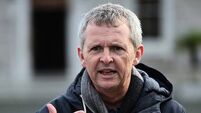New campaign encourages more women to enter and remain in politics

Women are forced to choose between a career in public office and family commitments, according to Orla O’Connor, director of the National Women's Council.
A new campaign to increase the number of women in politics is commencing today.
The National Women's Council (NWC) is launching a new toolkit in order to help women enter and remain in politics.














